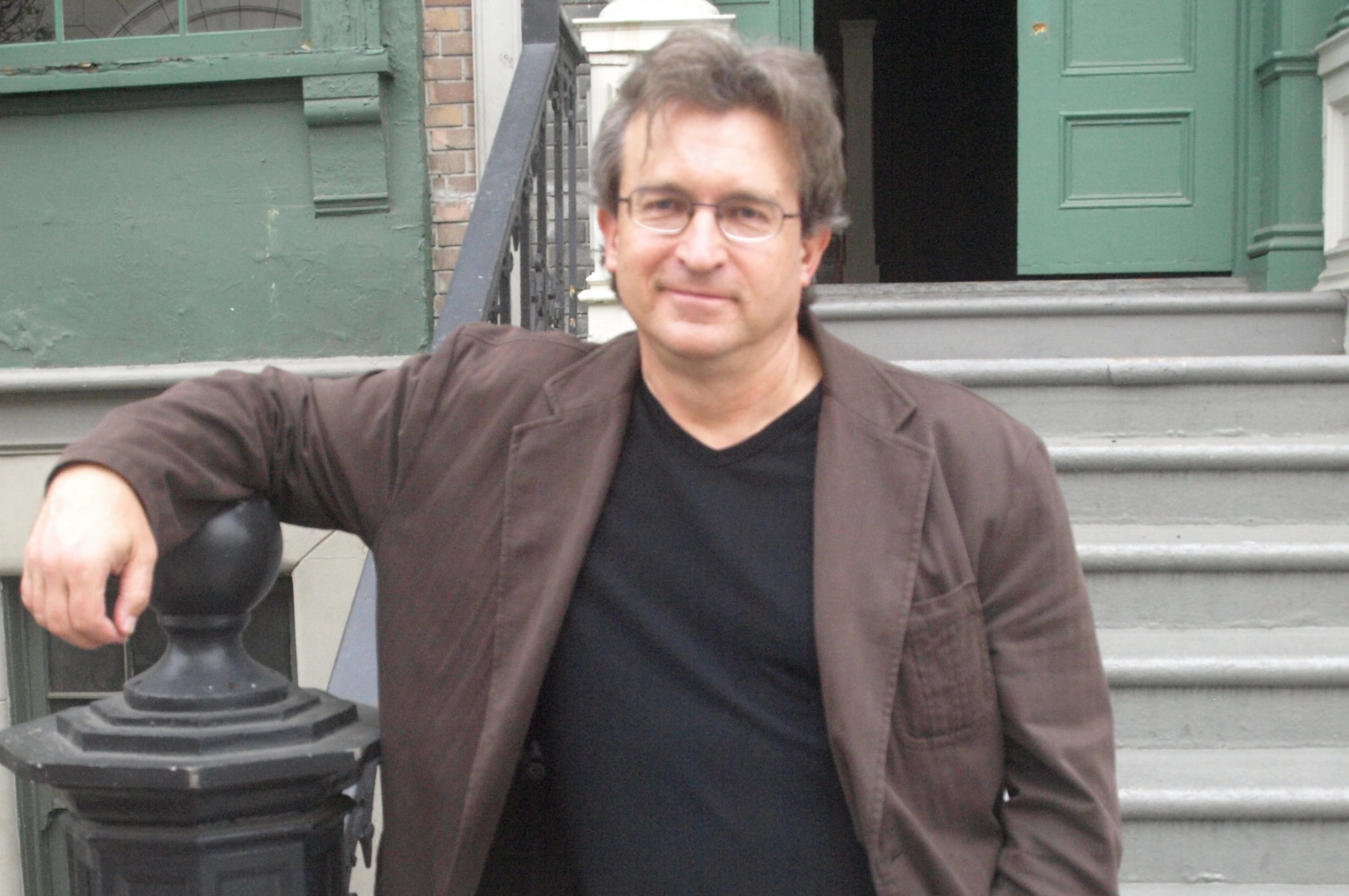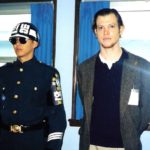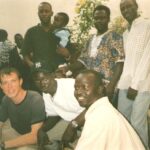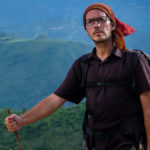Phil Cousineau is a freelance writer, documentary filmmaker, independent scholar, worldwide lecturer, storyteller, and creativity consultant. His thirty-plus published works include several bestsellers, such as The Art of Pilgrimage, The Book of Roads: Travel Stories from Michigan to Marrakech
, The Hero’s Journey: Joseph Campbell on His Life and Work
, Stoking the Creative Fires
, Wordcatcher
, and Burning the Midnight Oil
. Cousineau also has over twenty documentary film credits, including Wayfinders: A Pacific Odyssey, and Forever Activists: Stories from the Abraham Lincoln Brigade, which was nominated for an Academy Award. Since 2009, Cousineau has been the host and cowriter of the much-acclaimed series “Global Spirit,” which is currently running on PBS and Link TV. Cousineau is also a guest host on New Dimensions Radio. Cousineau is a Fellow of the Joseph Campbell Foundation, a Board Member of Sacred Sites International, and a member of the Author’s Guild. He lives with his family on Telegraph Hill, in San Francisco.
How did you get started traveling?
The family mythology is that two days after being born in an Army hospital, Fort Jackson, Columbia, South Carolina, I was bundled up in a ’49 Hudson and driven with my parents to Detroit, where I grew up. The story is that the rumble of the car engine and the tires on the highway got into my system and I haven’t stopped traveling since then. Fact is we traveled frequently as a family, taking weekend trips from Detroit all over the Midwest, and to the East Coast, and up into Canada where the Cousineau tribe hailed from. After I graduated from the University of Detroit with a degree in journalism there was no question that I would hit the road and take off on what I think of as the American Version of The Grand Tour. So I left for a few months, or so I told my college girlfriend, and came back a few years later. All those adventures got into the olde blood – and I have been traveling somewhere abroad every year since, by hook or by crook, first backpacking, then on writing and filming gigs, and now leading annual art and literary tours.
How did you get started writing?
I was hired at sixteen by the hometown newspaper, the Wayne Dispatch, and began stringing for other local Detroit papers all through college. After returning to the States I did construction work for years while essentially reinventing (and reeducating) myself, publishing a few freelance papers here and there. In 1984, I got my first film writing job, co-writing The Hero’s Journey, the documentary about Joseph Campbell, which was an international hit. I then turned that material into my first book, published in 1990. After so many years of working on the craft, that helped give me the propulsion I needed and I’ve published at least one book a year ever since, plus film and radio scripts. I still never leave home without a notebook and pencil!
What do you consider your first “break” as a writer?
Fortunately, I’ve had a few breaks. The first break was being hired by the hometown newspaper to cover local sports and shoot photos when I was just sixteen years old. The second break was being hired to come in and rewrite the documentary film about the mythologist Joseph Campbell. The third break was being hired to host and cowrite Global Spirit, the PBS and Link TV program, that Bill Moyers has called “the world’s first internal travel series.” I look forward to several more breaks, if the Fates allow such a thing.
What is your biggest challenge on the road?
There are innumerable challenges if we want to chronicle or document or record our travels. The first is the natural tendency just to … have fun, relax, let loose. There is nothing wrong with that — life is tough, life is hard – who doesn’t want to relax and just vacate the mind, which is, ahem, disturbingly close to “vacation.” For me, this is the difference between being a tourist and a traveler. There is no need to be hierarchical about this, it’s a matter of levels. To be a tourist is simply to take a tour – make a round – go someplace and come home again, with no real need to observe or chronicle for anyone but yourself or your loved ones. However, if we want to be a “tale-teller,” as Shakespeare called it, or a story-gatherer, for possible publication, then the challenge deepens. And I believe we need to take a binocular view of the world – looking twice, as it were, once for pleasure, once for the story. The challenge is that this can put us at a remove if we are traveling with someone else, or even from ourselves. And yet the very best travel writing – Jan Morris, Pico Iyer, Henry Miller – all attests to how the very decision to write about a place is the royal road to deeper participation, deeper observation, deeper feeling. It appears we have to deeply believe this in order to have the endurance to be constantly observing, constantly taking notes, constantly writing about the world we are encountering.
What is your biggest challenge in the research and writing process?
Research gives us the second layer of a story, the roots, the facts, the proofs, the “divine details,” as Nabokov called them, and it can be intoxicating to learn and keep learning. It takes a pro to know how much research to include and when to stop. As far as the writing goes, one significant challenge is knowing how important it is to write for a specific audience, since the requirements change. Writing for yourself and your own collection of stories is one thing; writing for a small town paper is another; writing for the New York Times Travel Section is yet another. Also of some difficulty is developing an ear for how people talk, their conversation. How to render the voice of a waitress in Alabama, or a sheep herder in Ireland, or a ballplayer in Detroit? Listen, listen, listen.
What is your biggest challenge from a business standpoint?
Clarity. Clarity in what we can really write, clarity in what the editor or market is looking for, and finally clarity in the balance between what we can earn from writing about our travels — and what we will spend to get the story.
Have you ever done other work to make ends meet?
I have been supporting myself as a writer for over 35 years now by writing in as many forms as possible so I never have to return to house painting, construction, or factory work. Once a year or so I have a recurring dream of being immured in the Detroit steel factory I had to work in during my college years and then wake up with redouble resolve to write more, write better, write forever. And so I write books, documentary film scripts, radio scripts, book and movie reviews – whatever it takes. Versatility. For me, that’s the key. Essentially, it all comes down to telling stories in as many formats as possible. And helping others tell theirs. So I have always supplemented my own work by doing creativity consultation or writing mentorship. Helping others helps me.
What travel authors or books might you recommend and/or have influenced you?
It all began with Homer’s Odyssey, and then Mark Twain’s The Innocents Abroad, which I read out loud with my parents when I was a kid growing up in Detroit. Everywhere I’ve traveled around the world I’ve read something either written there or about there – and so Henry Miller’s The Colossus of Maroussi
was a huge inspiration, as was Paul Theroux’s The Old Patagonian Express
, James Joyce’s A Portrait of the Artist as a Young Man
, and Mort Rosenblum’s histories of Africa and France, and his marvelous Secret Life of the Seine
. Jan Morris’ stories about the world’s great cities in Rolling Stone were an influence, as was Isabelle Eberhardt’s books.
What advice and/or warnings would you give to someone who is considering going into travel writing?
Write what you love; be careful of dumbing down just to get published. It sets a bad precedent. Be honest, be passionate. And here is a tincture of truth about travel writing: the best makes you fall in love with a place or a character and makes the reader want to visit there and meet people just like your characters. For me, this is the privilege aspect of travel writing: pull up from the reservoirs of your memory the one or two most unforgettable travel moments that you have read — such as Miller’s heart-stopping description of Epidaurus. Truly feel that again. And now keep that feeling in mind when you are writing about … Greece or Traverse City or Mousehole, Cornwall. Try to imagine your story doing for a reader what your favorite travel writer did for you. It may too much to try to spark in someone else the fiery desire to travel – but you can try to capture the feeling in your story that arose in you when you read the travel writers you most admire.
What is the biggest reward of life as a travel writer?
The greatest thrill is hitting the target, capturing a place and/or a character in a foreign place, which is the exact word, by the way, since the word “thrill” originally referred to the sound of an arrow hitting the target. This might be rewarding because of one of the great glories of writing is the possibility of living life twice. We live it once in the original experience and then again when writing about it, and possibly a third time when someone reads our work and describes its affect on them. And that is a wondrous reward.
Photo by Jo Beaton Cousineau.





